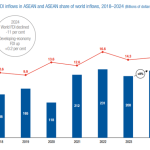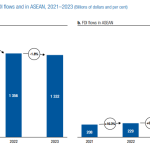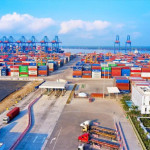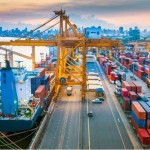Total number of posts 26.
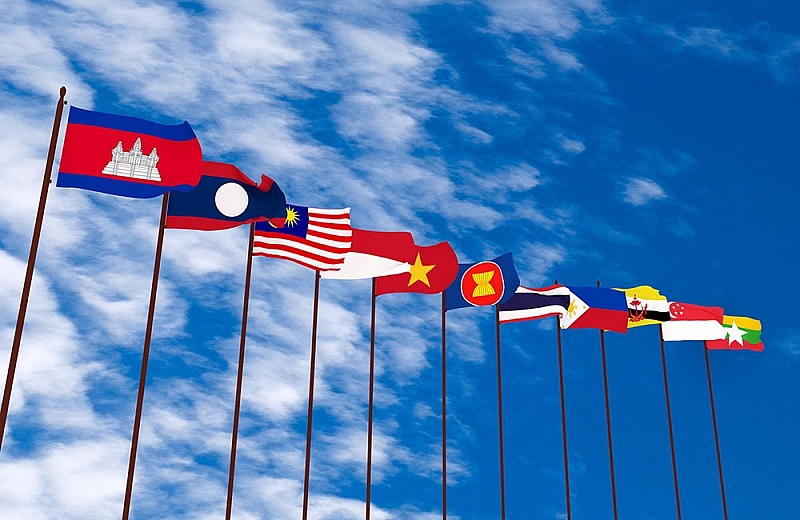
In October, Moody's and Fitch rated Vietnam at Ba2 and BB+, showing that the world continues to pay attention to Vietnam's stability. Reputable international economic organizations have optimistic forecasts for Vietnam's GDP growth. The International Monetary Fund (IMF) predicts that Vietnam's economic growth will recover to 6.1% in 2024, thanks to continued strong external demand, flexible foreign direct investment, and supportive policies. The Asian Development Bank forecasts Vietnam's economic growth will remain steady at 6% in 2024. United Overseas Bank (UOB) of Singapore has raised its full-year growth forecast for Vietnam by 0.5 percentage points to 6.4%.
HSBC Bank released an updated economic forecast report titled 'Vietnam Overview: Within Reach,' raising its GDP growth forecast for Vietnam in 2024 to 7% and keeping the 2025 forecast at 6.5%. HSBC confirmed that Vietnam is back as the growth star in ASEAN. Vietnam will continue to attract FDI due to its still-positive outlook, with particular attention to the potential for stable inflows into the manufacturing sector in the future, following the visit to the US by General Secretary and President To Lam, which attracted the interest of several companies.
On October 18, Standard Chartered Bank revised its GDP growth forecast for Vietnam in 2024 to 6.8%. For 2025, the forecast remains at 6.7%, with projected growth of 7.5% in the first half of the year and 6.1% in the second half compared to the same period in 2024. According to Standard Chartered experts, the current growth momentum of Vietnam’s economy is relatively strong, driven by improvements in various sectors such as exports, retail, real estate, tourism, and manufacturing.
Additionally, Vietnam ranks first on the list of the 10 countries with the fastest improving business environments. The Economist Intelligence Unit (EIU) in the UK has ranked Vietnam at the top of the list of countries with the fastest improving business environments over the past 20 years, further affirming its position as an attractive destination for international investors.
According to the EIU, this remarkable progress is due to Vietnam: Implementing free trade policies, reducing operational costs for foreign companies, and making strong investments in human and physical capital; Benefiting greatly from the China +1 policy; Strengthening relations with Western countries, positively impacting economic ties with important export markets such as the United States and the European Union.
The EIU forecasts that over the next five years, Vietnam’s economic environment is likely to improve more than competitors such as Indonesia and Thailand, thanks to free trade agreements, low wages, and significant market opportunities.







